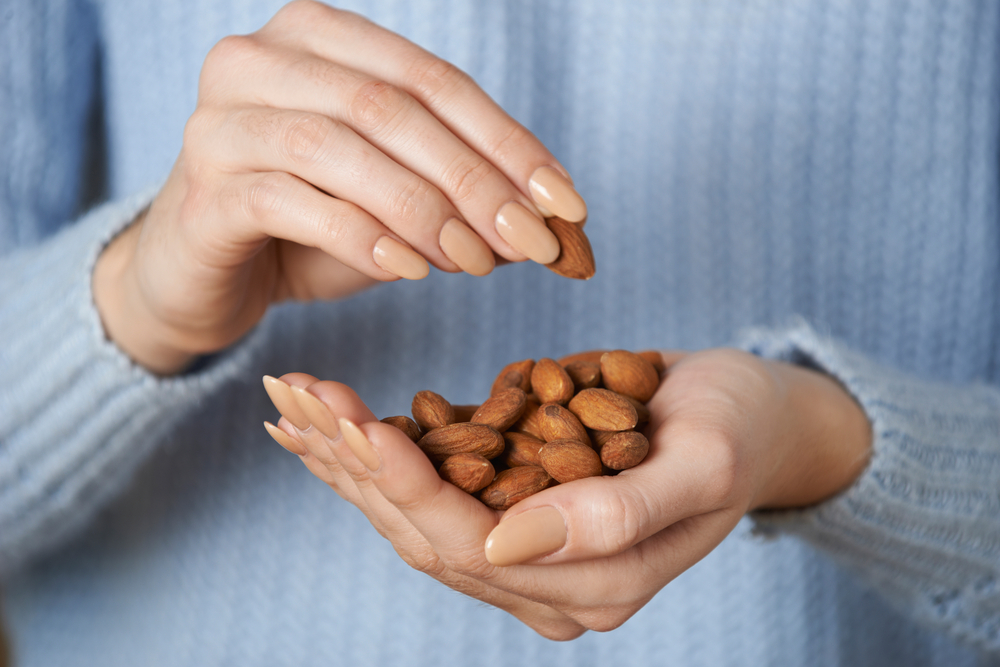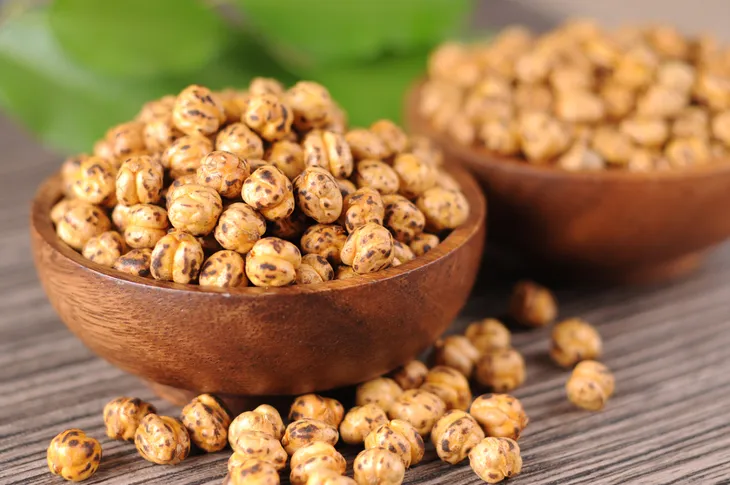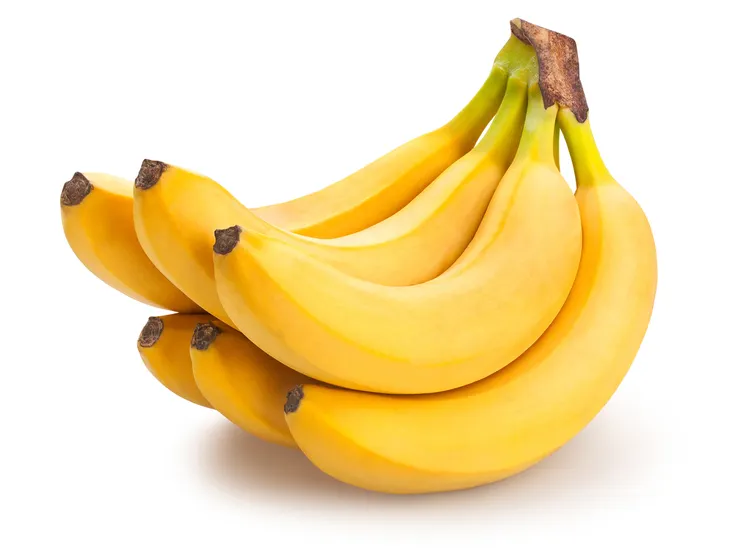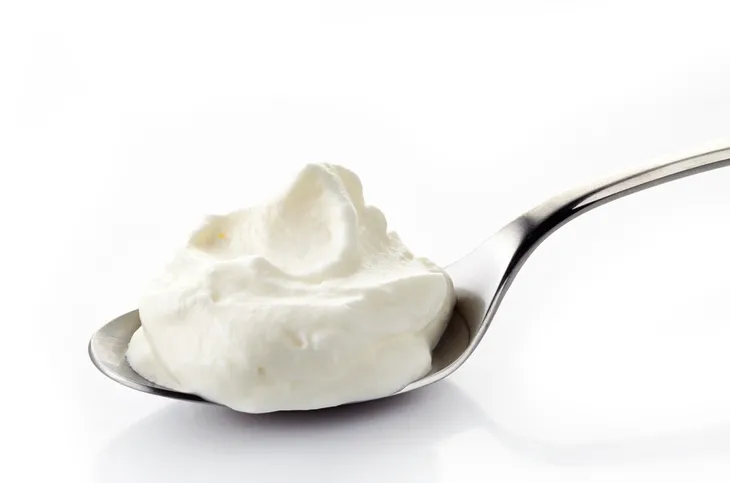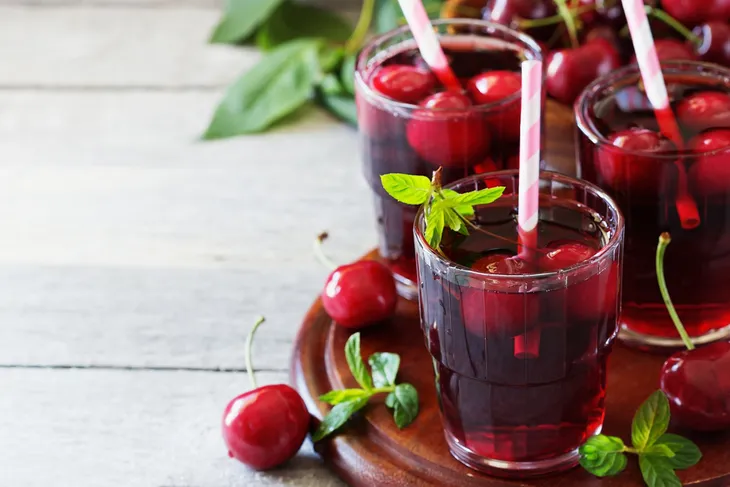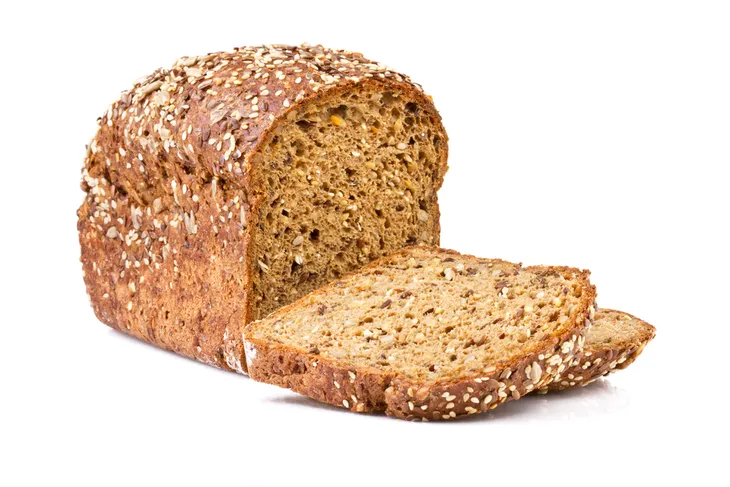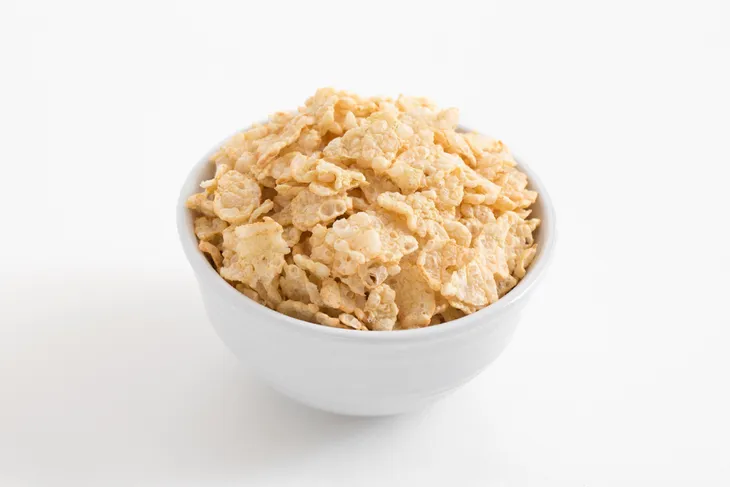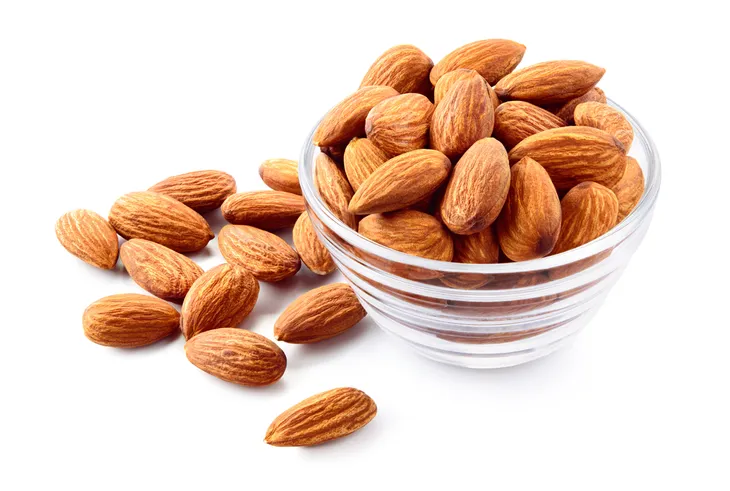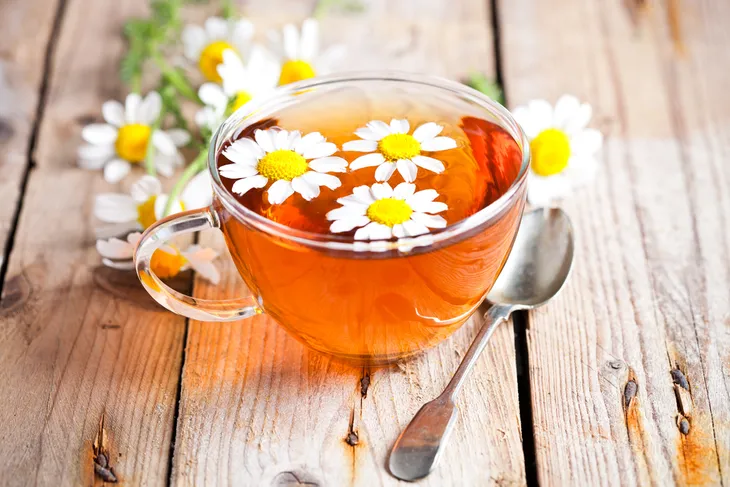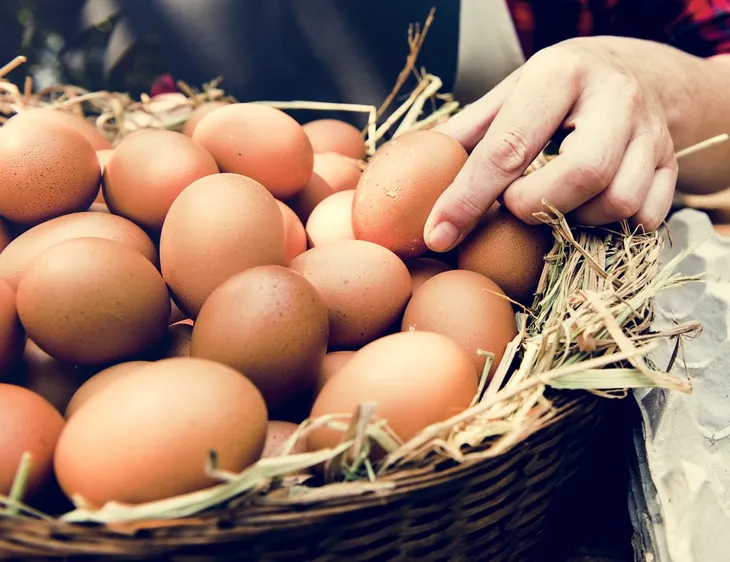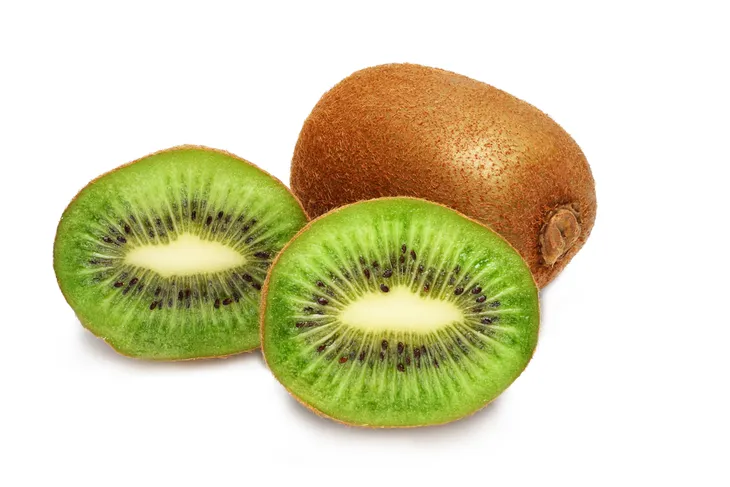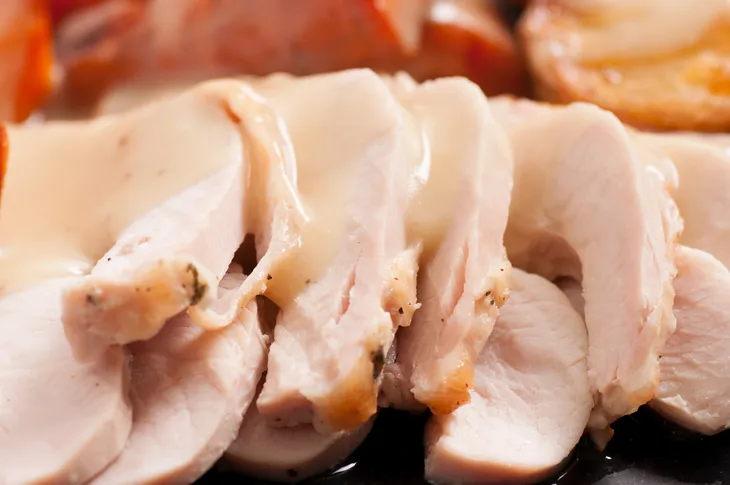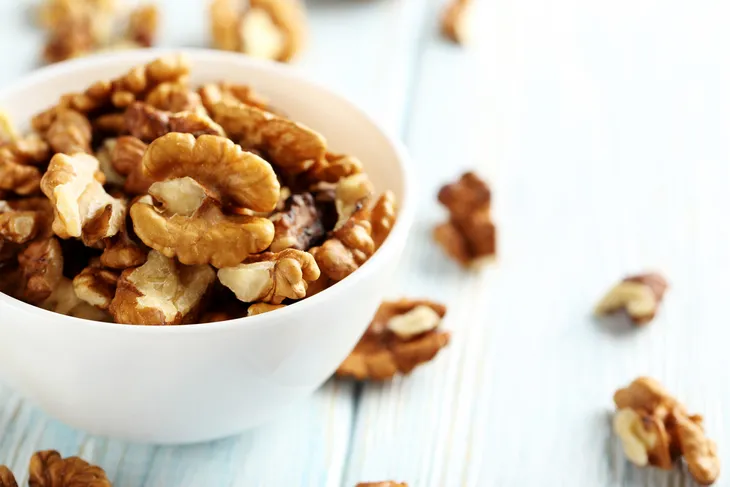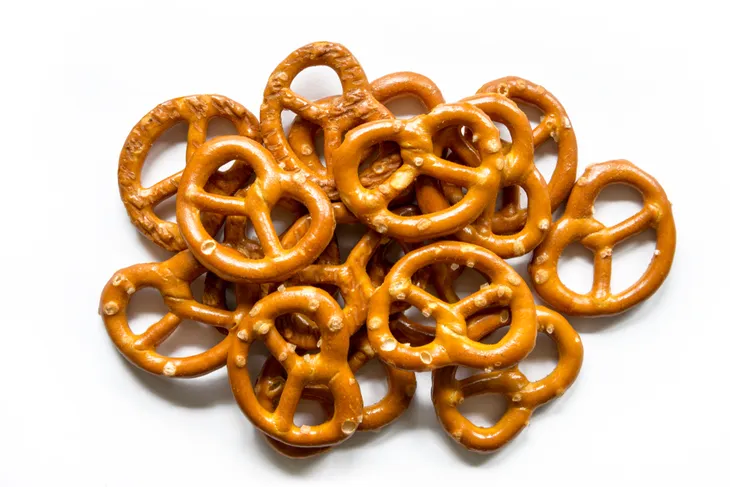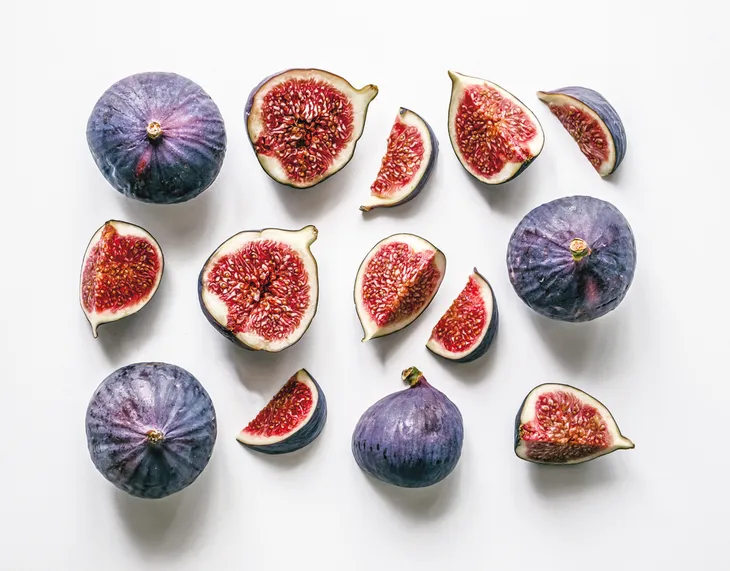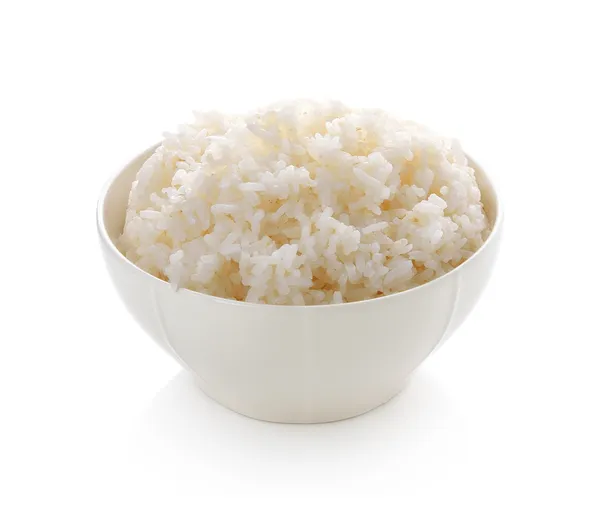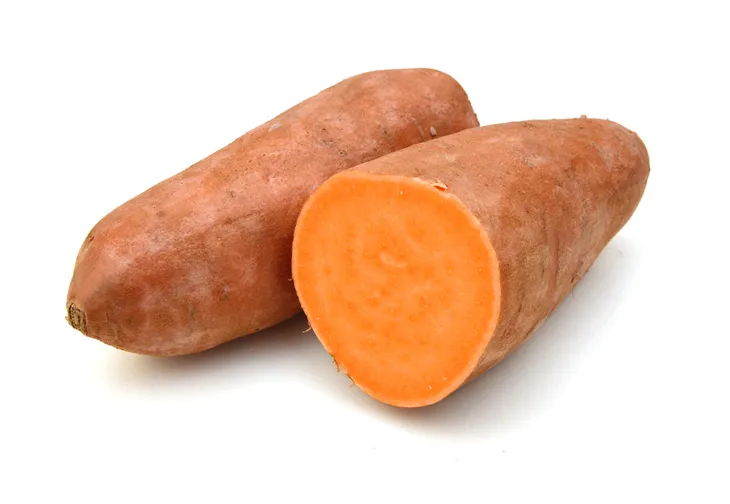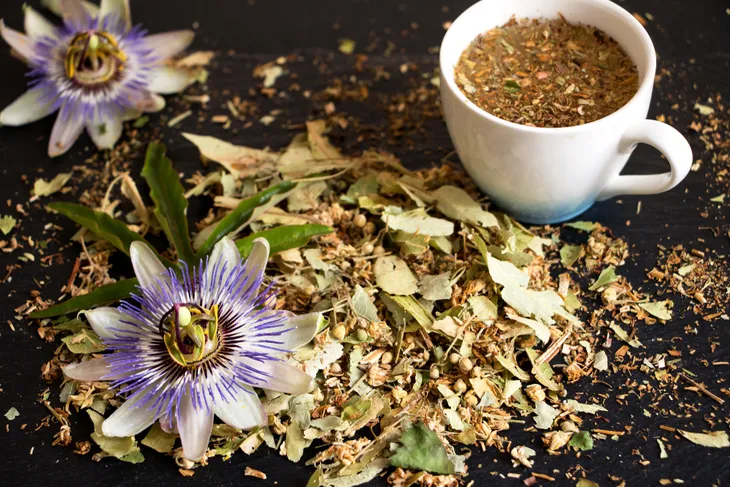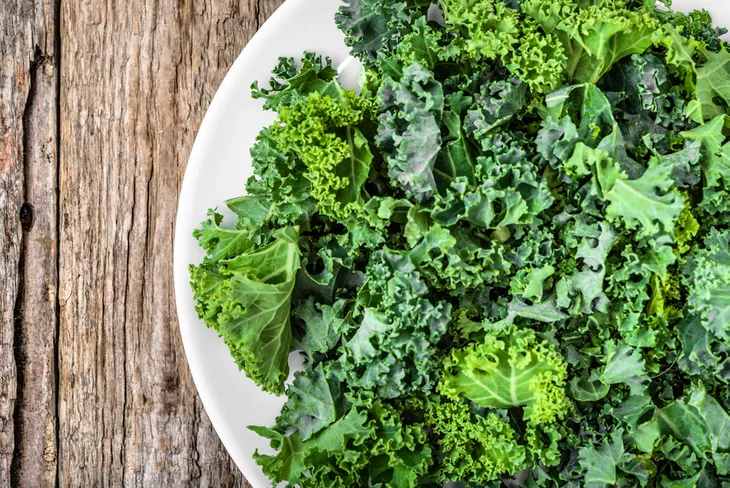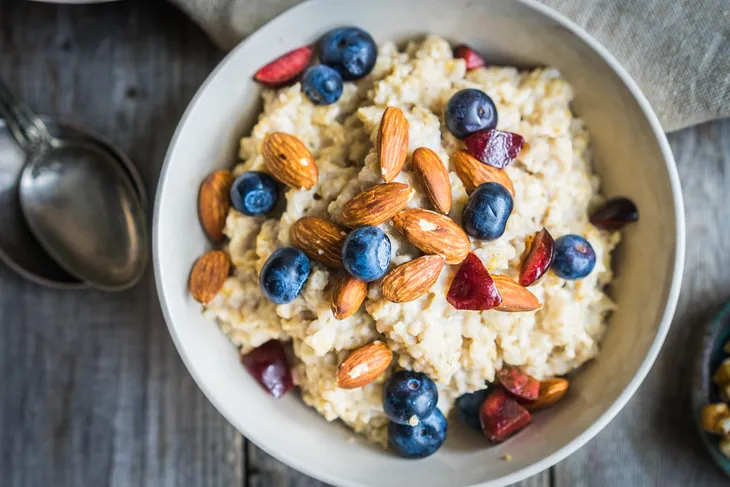Getting a good night’s sleep is a difficult task for many adults. Some people have a hard time falling asleep, while others have a hard time staying asleep. Then there’s other people who just can’t find the time to get an 8-hour sleep! Regardless of what the problem is, getting enough sleep and a good quality sleep is super important for our overall health, both mentally and physically.
A good night sleep will not only provide you with more energy, but it will also keep your immune system nice and strong, your skin looking and feeling radiant and your blood pressure low. These are all key components to great health. So if you’re looking for ways to get a good night’s sleep, you might want to start with your diet. Eating the following foods will help you sleep like a baby and wake up feeling refreshed and ready to start your day.
Here are 20 foods to help you sleep through the night…
Fatty Fish
Most types of fish are jam-packed with vitamin B6. This vitamin is needed to make melatonin – a sleep-promoting hormone which is triggered by darkness. In addition to its vitamin B6 content, fatty fish like salmon, tuna, trout and mackerel contain a high amount of vitamin D and are loaded with healthy omega-3 fatty acids, like EPA and DHA. These fatty acids are known for reducing inflammation and protecting against heart disease and boosting brain health, says Healthline.
While there are many incredible health benefits that come from eating fatty fish, one that many people might not know of is that they can actually induce sleep. “The combination of omega-3 fatty acids and vitamin D in fatty fish have the potential to enhance sleep quality, as both have been shown to increase the production of serotonin, a sleep-promoting brain chemical.”
If you’re going to add fish to your diet, salmon, tuna and halibut boast the highest levels of vitamin B6.
Chickpeas
Much like fish, chickpeas (also referred to as garbanzo beans) are packed full of vitamin B6 which the body uses to produce serotonin. This hormone is used by the body to elevate mood and decrease stress, says clinical psychologist Michael Breus to LiveStrong.
So what does this have to do with sleep? Well, serotonin also helps produce melatonin, the main hormone used to induce sleep. Chickpeas can be eaten on their own or crushed and mixed with other ingredients to make a healthy hummus dip. A few spoonfuls of this tasty snack will have you sleeping better in no time.
Bananas
Bananas are rich in both potassium and vitamin B6, as well as magnesium. The combination of potassium and magnesium are what make this fruit so great for promoting sleep because these two minerals are natural muscle-relaxants.
Health.com points out that they are also carbs which are also known to be good for sleep. “They’re overall health promoters,” says Russell Rosenberg, PhD, CEO of the National Sleep Foundation when talking to Health.com. “We need potassium for cardiovascular health and cognitive functioning.”
Yogurt
Research has linked difficulty falling asleep to a lack of calcium. Eating foods rich in calcium can reverse these effects and help you fall asleep faster. A bowl of yogurt in the evening will give you a boost of calcium which will help you get better quality shut-eye.
Tart Cherry Juice
Everybody loves cherries! This little fruit is not only sweet and easy to snack on, but it’s also got some major health benefits. In addition to eating cherries in their raw form, another great way to consume them is through tart cherry juice. In addition to being high in nutrients and a rich source of antioxidants that protect us from inflammation and harmful chronic diseases, cherry juice can also promote sleepiness.
“Tart cherry juice is also known to promote sleepiness, and it has even been studied for its role in relieving insomnia,” writes Healthline. “For these reasons, drinking tart cherry juice before bed may improve your sleep quality.” According to Healthline, cherry juice works wonders due to its high melatonin content. Melatonin is a hormone that “regulates your internal clock and signals your body to prepare for sleep.”
Whole Grains
It’s been ingrained in us to avoid eating bread, but not all carbs are bad! Whole grains are actually really good for us as long as they are enjoyed in moderation. In fact, Lois Ferguson, registered dietician, and author of Eating for Energy and Ecstasy, encourages eating a complex carbohydrate like a whole grain piece of toast about 30-minutes (up to an hour) before bed.
“The carbs increase serotonin in your brain, which will help you fall asleep faster,” writes Best Health. If you don’t want to whip up a piece of toast, you could also try snacking on 2-cups of air-popped popcorn.
Fortified Cereals
Even though isn’t not a good idea to eat a lot of carbs throughout the day, especially in the evening, there is some evidence that “good” complex carbs could be a nice bedtime snack because they promote sleep. What’s even better is if you enjoy it with some milk which is also known to have sleep-promoting qualities, says Health.com.
Much like fish and chickpeas, fortified cereals are a great source of vitamin B6. As noted earlier, vitamin B6 is essential in producing melatonin (a sleep inducing hormone). If you’re looking for a good night sleep, down a bowl of fortified cereal before bed and start sleeping like a baby every night.
The best complex carbs to choose from are fortified cereals, like a bowl of shredded wheat or Kashi. You could also try quinoa, barley and buckwheat.
Almonds
Almonds are a great snack food to have on hand because they’re an excellent source of many different nutrients, including phosphorus, manganese, and riboflavin. For the sake of this article, we’re gonna talk about their magnesium content! Just 1-ounce of almonds contain 19-percent of our body’s daily requirement. Why is this important? Well studies have shown that magnesium can help improve sleep quality, particularly for those people who suffer from insomnia.
“Magnesium’s role in promoting sleep is thought to be due to its ability to reduce inflammation. Additionally, it may help reduce levels of stress hormone cortisol, which is known to interrupt sleep,” writes Healthline.
Chamomile Tea
If you like to enjoy a hot beverage before bed, choose a nice herbal tea. There are plenty of herbal teas that don’t contain any caffeine, and some of them even promote sleep! The first one we’re going to talk about is chamomile tea which is not only known for promoting sleep, but also has flavones and antioxidants that contribute to other great health benefits like reducing inflammation, anxiety, depression, and improving the immune system and skin health.
The reason chamomile tea is good at promoting sleep is because it contains apigenin, “an antioxidant that binds to certain receptors in your brain that may promote sleepiness and reduce insomnia,” writes Healthline. The source goes on to cite studies which proved the effects of apigenin. The first study looked at 34 adults and found that those who drank chamomile extract twice a day were able to fall asleep 15 minutes faster with less interruptions in the night. The second study looked at women who drank chamomile tea for two weeks and found they also experienced improved sleep quality compared to those who didn’t drink the tea.
Eggs
This breakfast food might actually be better suited for the evening! Eggs have been found to improve sleep quality because they are high in protein and protein helps keep our blood levels stable so that we can sleep soundly through the night, says LiveStrong.
If you wake up several times throughout the night, it could be because your body isn’t getting enough protein. Eating a hard boiled egg before bed will not only help you fall asleep, but will also help you stay asleep right through the night and into the morning. To make it even more effective, add a carb-rich food like whole grain toast.
Kiwi
This sweet and tasty fruit is super nutritious and as an added bonus, it’s also low in calories. Healthline points out that one medium kiwi contains only 50-calories, lots of vitamin C, vitamin K, as well as folate and potassium. The high amount of fiber and carotenoid antioxidants make kiwi great for digestive health, reducing inflammation, and lowering cholesterol.
According to studies, kiwis might also be able to improve sleep quality if eaten before bed. Healthline refers to one four-week study that examined 24 adults who all consumed two kiwis at least an hour before bed and found that those who did were able to fall asleep 42-percent faster than those who didn’t. “Their ability to sleep through the night without waking improved by 5-percent, while their total sleep time increased by 13-percent,” writes the source. “The sleep-promoting effects of kiwis are thought to be due to their content of serotonin, a brain chemical that helps regulate your sleep cycle.”
Another reason kiwis are so great at promoting sleep is because “the antioxidants in kiwis, such as vitamin C and carotenoids, may be partly responsible for their sleep-promoting effects. This is thought to be due to their role in reducing inflammation.”
Turkey
We’ve all heard people say that Thanksgiving dinner can make us sleepy and we’re here to explain, it’s because of the turkey! Turns out there’s some truth behind this theory because turkey actually does contain amino acid tryptophan. When we consume this amino acid it increases our production of melatonin, the hormone that makes us sleepy.
In addition to this, turkey contains a lot of protein. According to Healthline it has about 4-grams of protein per ounce. Not only is protein needed to keep us feeling nice and full and building strong muscles, it can also promote tiredness. “There is evidence that consuming moderate amounts of protein before bed is associated with better sleep quality, including less waking up throughout the night,” writes the source.
Walnuts
Like almonds, this tree nut provides lots of nutrients like fiber, magnesium, phosphorus, copper, and manganese, but can also improve sleep quality! “Eating walnuts has been claimed to improve sleep quality, as they are one of the best food sources of the sleep-regulating hormone melatonin,” explains Healthline.
While being rich in vitamins, minerals and nutrients, walnuts also contain lots of healthy fats like omega-3 fatty acids and linoleic acid. In addition to all that, walnuts contain a good amount of protein (about 4-grams per ounce) which helps reduce appetite. “The fatty acid makeup of walnuts may also contribute to better sleep. They provide ALA, an omega-3 fatty acid that’s converted to DHA in the body.” DHA is thought to increase the body’s production of serotonin, which is a sleep-enhancing chemical made by the brain.
Pretzels
You might already be snacking on this salty treat before bed while watching a movie, and according to Reader’s Digest, it’s not such a bad habit! Pretzels have long been touted as a better more health-conscious snack food than potato chips, and while they’re still not exactly healthy, they could help increase your tryptophan levels and encourage a better nights sleep.
Reader’s Digest points out that pretzels have been known to naturally spike our blood sugar levels which normally isn’t a good thing, but when it comes to sleep, it actually works to decrease the amount of time it takes us to fall asleep. Normally you’d want to avoid doing this to avoid mood swings and resistance when it comes to the hormone that regulates glucose in the blood, but if you’re struggling with sleep, it could be the solution you’re looking for.
Figs
Even though figs aren’t everyone’s favorite snack food, there are lots of health benefits to be gained from eating them. “Figs pack potassium, magnesium, calcium, and iron,” says Jaclyn London, MS, RD, CDN, Nutrition Director at the Good Housekeeping Institute. “These minerals help with blood flow and muscle contraction, which are key for falling asleep.”
White Rice
You probably don’t need any convincing to eat more white rice as it’s a popular choice among many at dinner time. While we’re typically told to avoid eating refined grains like white rice, and it’s true, it’s not the most nutritious food as it’s had all of its bran and germ removed making it low in fiber, nutrients and antioxidants. A much healthier option would be to eat brown rice, but white rice has a high glycemic index, which is a measure of how quickly a food increases blood sugar levels. “It has been suggested that eating foods with a high glycemic index, such as white rice, a few hours before bed may improve sleep quality,” writes Healthline.
The source refers to one particular study which examined 1,848 people and compared their intake of rice, bread, or noodles before bedtime and found that those who ate more rice experienced a better and longer sleep. Healthline also notes that it’s been found the best time to eat rice to improve sleep is about one hour before bed.
Sweet Potato
Sweet potatoes often get overlooked due to their popular counterpart, but sweet potatoes are not only tasty and healthier than regular potatoes, but they have some pretty incredible benefits!
Sweet potatoes can actually help promote sleep because they are a complex carbohydrate. “Not only do they provide sleep-promoting complex carbohydrates, they also contain that muscle-relaxant potassium,” writes Health.com.
Passionflower Tea
You might not be as familiar with passionflower tea but it’s been around for thousands of years and is commonly used to treat health ailments. According to Healthline, it can be used to reduce inflammation, boost immune health, reduce heart disease risk and lower anxiety. Since passion flower is known to have a calming effect on the brain with its apigenin content, it can also be used to induce sleepiness.
Apigenin is an antioxidant that produces a calming effect by binding to certain receptors in the brain. Passionflower tea also increases the production of GABA, “a brain chemical that works to inhibit other brain chemicals that induce stress, such as glutamate,” writes Healthline. “The calming properties of passionflower tea may promote sleepiness, so it may be beneficial to drink it before going to bed.” The source notes that more research is needed, but for now it’s worth a try!
Kale
There are so many benefits that come from eating dark, leafy green vegetables like kale. One that doesn’t get talked about very often is its ability to promote sleep. Kale is loaded with calcium, “which helps the brain use tryptophan to manufacture melatonin,” says Reader’s Digest.
Oatmeal
Yet another “breakfast” food to land on this list, oatmeal might just be the most perfect bedtime snack as it’s warm and comforting. Doesn’t that just make you want to crawl into bed? What makes it so great for sleep is that it’s packed full of calcium, magnesium, and potassium, “all of which may help make you fall asleep more quickly — not to mention that a deficiency in magnesium may make it more difficult to stay in slumber,” writes LiveStrong.
Just be careful with oatmeal because some of the instant processed packages contain lots of sugar. The best option for this food is to use the most bland option of steel cut oats or plain instant-cooking oats and then to sweeten it up on your own with fruit or some honey.
All foods listed above are be high in carbohydrates and not suitable for everyone. If you have any other conditions speak with your dietitian first to help determine what food options are best for you, says Julie Ching, registered dietitian and certified diabetes educator.
